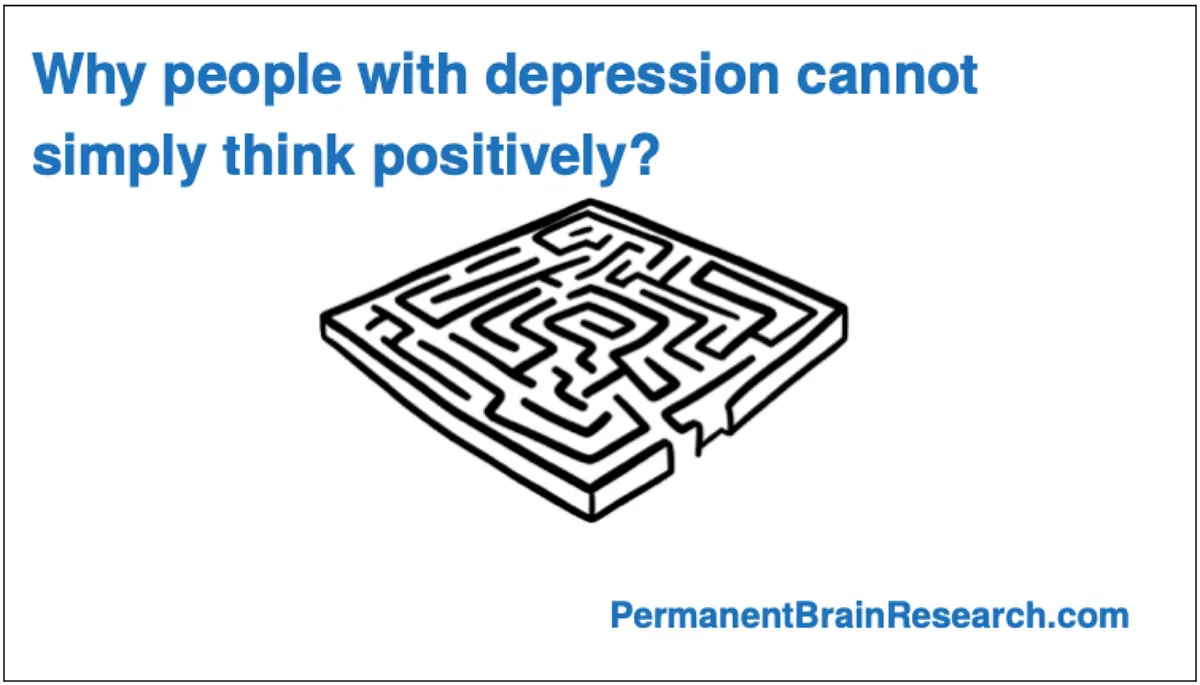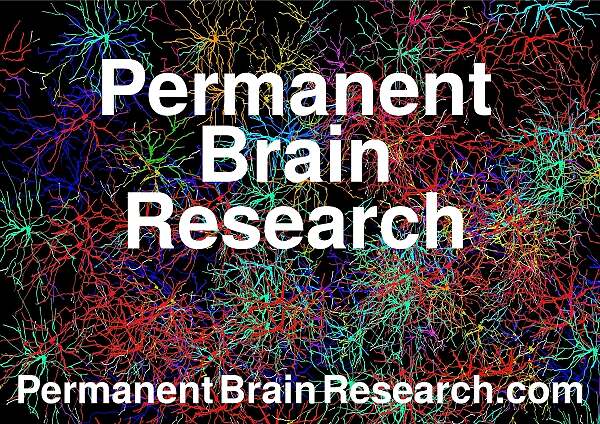
Why you cannot delete a depression by just smiling or thinking positive
“Why can’t people with depression simply think positively?” – this highlights a common misconception about depression. Depression is deeply rooted in complex brain functions. It is not merely a matter of changing one’s thoughts.
Is every depressive state a mental illness?
No, by far, not every depression is a sign of an illness. In many cases, depression is the competent and healthy answer to sick contexts. So, depressive people should first go into a (guided) analysis of their situation. With analysis, I do not necessarily mean psychoanalysis. It is more about the systemic perspective on a complex living situation, relationships, and loyalties.
What are Advanced Insights into Depression’s Neurological Impact?
Depression is associated with substantial changes in brain structure and chemistry. This influences cognition and emotion. Brain Research shows how areas like the prefrontal cortex and the amygdala are implicated in depression.
The prefrontal cortex shows reduced activity during depressive episodes. This is complicating the management of negative thoughts. So, it is not a sign of incompetence not being able to “think positive” – it is chemistry, combined to electricity in the brain.
The prefrontal cortex is vital for decision-making and emotional regulation. A depressive person cannot stop depression by just thinking positively.
Cognitive Dysfunction in Depression
The depressive condition significantly affects cognitive processes such as memory, concentration, and decision-making. Neuroscientific studies reveal that depression involves a disruption in neural circuits that manage cognitive and emotional tasks. Decreased functionality in the hippocampus, an area critical for memory formation, is commonly observed in depressed individuals, simplifying “thinking positively” inadequate for combating depressive symptoms.
What are the Limitations of Positive Thinking?
While positive thinking can support mental wellness, it is insufficient as a standalone treatment for depression. The condition often necessitates a multifaceted treatment approach tailored to an individual’s neurobiological needs. Treatments like Systemic Therapy and Hypnotherapy are effective, not merely through promoting positive thinking but by modifying the neural pathways that contribute to negative thought patterns.
What are Integrative Treatment Approaches for Depression?
Emerging research supports integrative approaches that combine pharmacotherapy, psychotherapy, and sometimes, neuromodulation techniques like transcranial magnetic stimulation (TMS). These treatments address the biological underpinnings of depression and offer relief by altering the brain’s neurotransmitter levels and enhancing neuroplasticity—the brain’s ability to reorganize itself by forming new neural connections.
Understanding depression through the lens of brain research provides a more accurate picture of why simple acts of willpower, like “thinking positively,” are insufficient to overcome the disorder. Recognizing depression as a complex interplay of brain functions and maladaptive neural patterns underscores the need for comprehensive, scientifically-backed treatment strategies.
By delving deeper into the sophisticated dynamics of brain function, we can foster greater empathy and develop more effective interventions for those suffering from depression, enhancing both understanding and treatment outcomes in the field of mental health.
What are scientists say being pessimistic in depression?
Depression is often characterized by a pervasive pessimistic outlook, which includes a diminished capacity for positive future thinking. This cognitive pattern is a significant feature of depressive disorders and can impact an individual’s ability to anticipate and experience pleasure from future events.
Reduced Positive Future-Thinking in Depression
Research consistently shows that individuals with depression generate fewer positive future expectancies compared to non-depressed individuals. This reduction in positive anticipation is not necessarily due to an inability to experience pleasure but rather a difficulty in accessing mental representations of positive experiences (MacLeod & Salaminiou, 2001; Bjärehed et al., 2010). Even in mild to moderate depression, where suicidal ideation is absent, the anticipation of positive future events is significantly lower, highlighting this as a core characteristic of depression (Bjärehed et al., 2010).
Mechanisms and Cognitive Vulnerabilities
Depression is linked to impairments in episodic future thinking, particularly for positive events. Depressed individuals often simulate future events with less specificity, detail, and vividness, which correlates with lower anticipatory pleasure (Hallford et al., 2020). This cognitive vulnerability can be exacerbated by mental control lapses, revealing a tendency towards negative thinking when cognitive demands are high (Wenzlaff & Bates, 1998).
Emotion Regulation and Cognitive Processes
Repetitive negative thinking is more central to depression than positive reappraisal, with stronger connections to individual symptoms of depression and anxiety (Everaert & Joormann, 2019). The habitual use of repetitive negative thinking and less frequent positive reappraisal are stable over time, suggesting these are enduring traits in depression (Everaert & Joormann, 2020). Positive psychology interventions, which focus on building positive emotions and cognitions, have been shown to be effective in reducing depressive symptoms and enhancing well-being (Jain et al., 2023).
Challenges and Future Directions
The specificity of future thinking in depression, particularly the reduced specificity for positive events, remains an area for further research. Understanding the emotional valence and cognitive processes involved in future thinking can provide insights into potential therapeutic targets (Gamble et al., 2018). Additionally, exploring the role of positive mental health as a buffer against depression and its associated risks, such as suicide ideation, could inform prevention strategies (Teismann et al., 2017). Future research should aim to clarify the cognitive deficits underpinning these findings and explore interventions that can enhance positive future thinking in depressed individuals (Hallford et al., 2020).
Studies
MacLeod, A., & Salaminiou, E. (2001). Reduced positive future-thinking in depression: Cognitive and affective factors. Cognition and Emotion, 15, 107 – 99.
Bjärehed, J., Sarkohi, A., & Andersson, G. (2010). Less Positive or More Negative? Future-Directed Thinking in Mild to Moderate Depression. Cognitive Behaviour Therapy, 39, 37 – 45.
Wenzlaff, R., & Bates, D. (1998). Unmasking a cognitive vulnerability to depression: how lapses in mental control reveal depressive thinking.. Journal of personality and social psychology, 75 6, 1559-71.
Everaert, J., & Joormann, J. (2019). Emotion Regulation Difficulties Related to Depression and Anxiety: A Network Approach to Model Relations Among Symptoms, Positive Reappraisal, and Repetitive Negative Thinking. Clinical Psychological Science, 7, 1304 – 1318.
Teismann, T., Forkmann, T., Brailovskaia, J., Siegmann, P., Glaesmer, H., & Margraf, J. (2017). Positive mental health moderates the association between depression and suicide ideation: A longitudinal study. International Journal of Clinical and Health Psychology : IJCHP, 18, 1 – 7.
Gamble, B., Moreau, D., Tippett, L., & Addis, D. (2018). Specificity of Future Thinking in Depression: A Meta-Analysis. Perspectives on Psychological Science, 14, 816 – 834.
Hallford, D., Barry, T., Austin, D., Raes, F., Takano, K., & Klein, B. (2020). Impairments in episodic future thinking for positive events and anticipatory pleasure in major depression.. Journal of affective disorders, 260, 536-543.
Jain, M., Pradhan, M., Kar, S., & Kumar, P. (2023). Positive Psychology Interventions in Patients with Depression: A Review. Mind and Society.
Everaert, J., & Joormann, J. (2020). Emotion regulation habits related to depression: A longitudinal investigation of stability and change in repetitive negative thinking and positive reappraisal.. Journal of affective disorders, 276, 738-747.
Explore: What is Permanent Brain Research?


